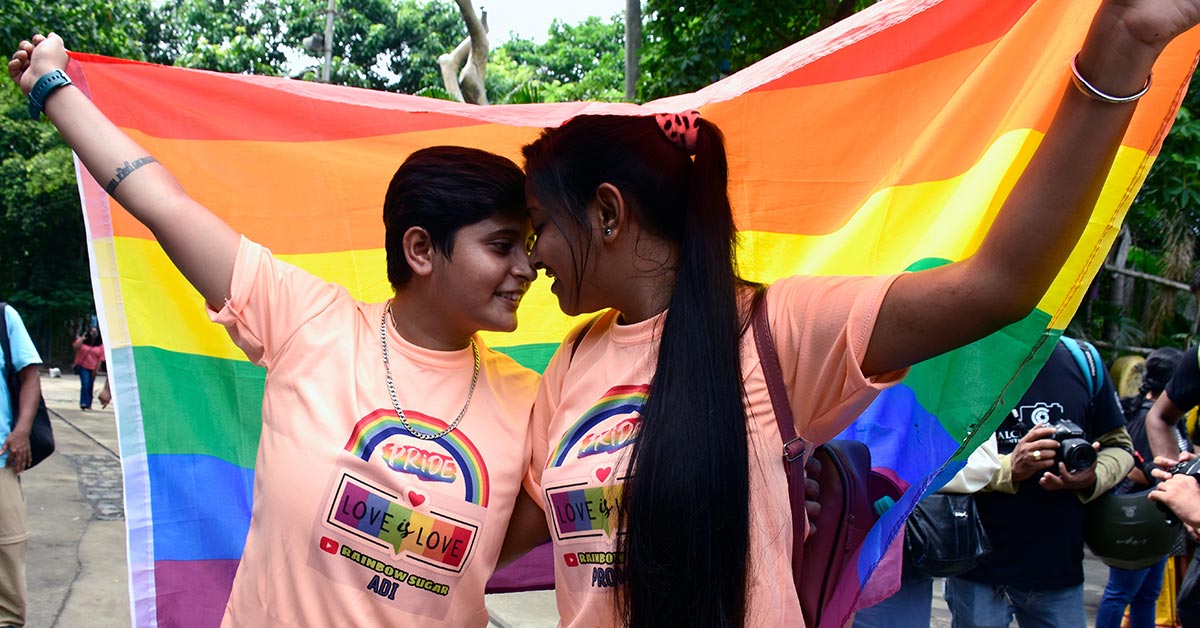India: Supreme Court affirms queer couples, stops short of marriage equality

A divided Supreme Court judgment has left same-sex couples in India in limbo (Photo: ParthaKar49 / Shutterstock)
In a decision that’s left millions deeply disappointed, the Supreme Court of India has declined to legalise same-sex marriage, but simultaneously affirmed that same-sex couples should have the right to form unions.
Following months of deliberation after hearings in April, the court declared on Tuesday that it lacks the authority to legalise same-sex marriages, as the right to marry is not explicitly included in the constitution.
Instead, the court found that the decision to recognise same-sex marriage is a matter to be decided by lawmakers in Parliament.
Rights of LGBTIQ+ couples acknowledged
The court nevertheless asserted that “The state has an obligation to recognise such unions and grant them benefits under the law,” and stated that “the right to enter into a union cannot be restricted based on sexual orientation.”
Additionally, the court accepted the government’s commitment to establish an expert committee to define the scope of entitlements for queer couples in unions.
Chief Justice of India, Dhananjaya Y Chandrachud, wrote, “Choosing a life partner is an integral part of choosing one’s course of life. Some may regard this as the most important decision of their life.”
He firmly rejected the government’s argument that the desire for same-sex marriage reflects an “urban elitist view for the purpose of social acceptance” and emphasised that “queerness is not urban elite. Homosexuality or queerness is not an urban concept or restricted to the upper classes of society.”
Additional rulings for LGBTIQ+ rights
The ruling also ordered the government to ensure that intersex children are not subjected to forced operations and that trans people are not required to undergo medical procedures in order to access legal gender recognition.
The court further directed the police to halt harassment of queer individuals and couples and urged the government to educate the public about queer identity.
Psychologist Ankita Khanna, one of the petitioners in the case, said she was “deeply disappointed” by the ruling.
“What we got today was a deeply divided judgement, that was unclear about what the law could offer as relief to the challenges of our unequal and diverse queer lives. Having said that, the queer community will continue to move forward in solidarity and with resilience, as we always have,” she said in a statement.
A judgement with far-reaching implications
Outright International noted that the Supreme Court’s ruling will have far-reaching implications, not only within India but also throughout Asia and across the world, with the potential to bolster LGBTIQ equality claims but also to slow progress toward marriage equality.
“While the ruling today falls short of granting marriage equality, it is encouraging to see that the judges of the Indian Supreme Court have acknowledged the inherent rights of LGBTIQ individuals and recognised their presence in all corners of society,” commented Maria Sjödin, executive director of Outright International. “This recognition is a significant step towards achieving full equality for LGBTIQ people in India.”
Set to shortly become the most populated nation in the world, India has seen a rapid and seismic shift in LGBTIQ+ equality in recent years. It was only in 2018 that the Supreme Court decriminalised consensual adult homosexuality.
Leave a Reply